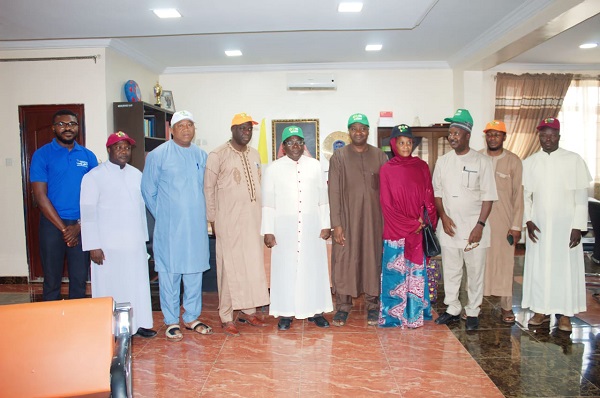
The Catholic Bishop of Sokoto, Bishop Mathew Kukah has called for innovative strategies to address the issue of hunger in Nigeria.
Kukah made this observation during a meeting with a delegation from the Institute for Agricultural Research (IAR), Ahmadu Bello University, Zaria, led by its assistant director of research, Prof. Bitrus Tarfa.
The purpose of the visit was to inform the bishop about TELA Maize, a transgenic maize variety developed by the institute that is drought-tolerant, resistant to stem borers and fall armyworm (FAW) and capable of improving the economic fortunes of farmers.
In response to the presentation, Kukah expressed his concern about the prevalence of hunger in Nigeria and the limited choices available to people regarding what to eat. He emphasised the need for food to be available to the people and for them to be allowed to decide whether or not to eat genetically modified organisms (GMOs).
He commended the institute’s efforts in releasing crop varieties that alleviate the suffering of the masses and urged them to be transparent in their research so that people can make informed choices.
Tarfa explained that the TELA Maize variety would ensure farmers get bumper harvests and spend less money on procuring and using harmful insecticides/pesticides. He also noted that the TELA Maize Project, which started in 2019 in Nigeria, aims to release maize varieties that are resistant to fall armyworms and stemborers, as well as drought in maize.
The project has resulted in the development of three drought-tolerant varieties (SAMMAZ 62, SAMMAZ 63 and SAMMAZ 68) which have been released to farmers in Nigeria in 2020 and 2022, respectively.
The TELA Maize variety was developed to meet the needs of farmers in Nigeria and to save costs from insecticide sprays and crop damage up to N9 billion. On average, Nigeria spends over N5 billion annually on maize importation, which depletes its foreign reserves.
The TELA Maize variety will ensure that farmers in the drier savannas are assured of increased yields of 8-9 tonnes per hectare from their fields if they plant TELA maize varieties, aside from the economic gains from the ravaging effect of stemborers and fall armyworm.
The TELA Maize project lead scientist, Prof. Rabiu Adamu solicited the bishop’s partnership in getting the variety to the masses as a potent weapon to fight hunger and malnutrition amongst children and adults not only in Nigeria but in Africa.
The TELA Maize project is a product of a global partnership coordinated and managed by the African Agricultural Technology Foundation (AATF) in selected African countries including Nigeria, South Africa and Ethiopia, and provides better drought tolerance, protection against stem borers, as well as significant protection against fall armyworm (FAW).
The variety eliminates the major hindrances to maize production in the country and guarantees farmers yields of up to 7-10 tons per hectare under good agronomic practices.


